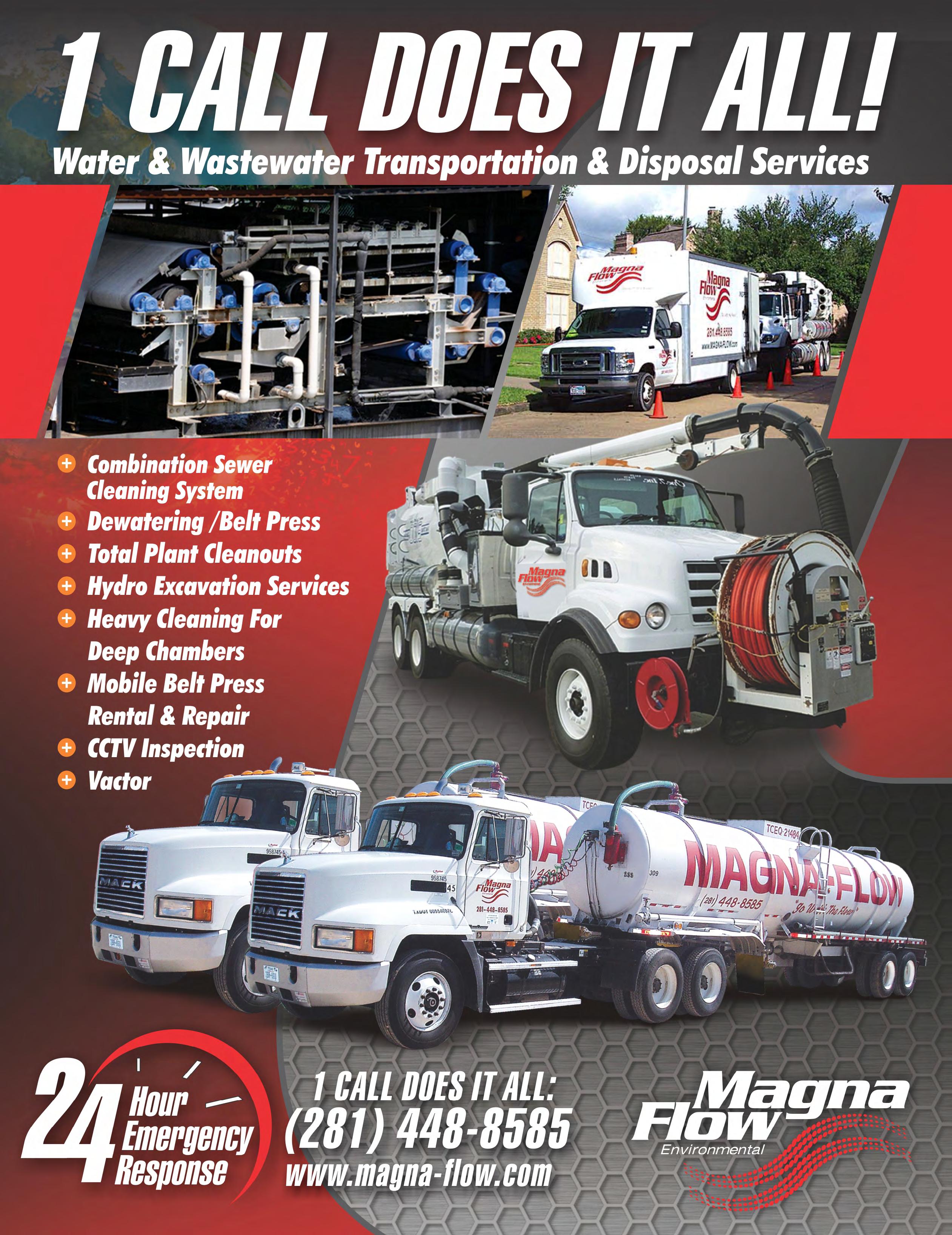






August 19th - 21st 2025, East Texas Region - Longview
November 4th – 6th 2025, West Texas Region – Lubbock
(Not all regions offer Surface 1 which is a 24 hour class these above dates reflect all regions starting on Monday and offering 24 hour classes. Once we receive all the schools fliers we will post if in fact the school begins on Monday at 1:00 or Tuesday at 8:00 )
Check the TWUA Website for the most up-to-date information related to TWUA Regional opportunities. If travel and being in crowds cause you concern or your employer has not approved travel, please look at the TWUA Computer Based Training options. (https://twua.org/online-class-dates)
Annual School – The dates for the 107th Annual School are September 9th – 11th, 2025. Tuesday, September 9th, at 8:00 a.m., all training classes begin. The ability to pre-register for the 107th A.S. will be made available as soon as possible.


TEXAS WATER UTILITIES JOURNAL
( ISSN – 1051709X) is published monthly by the Texas Water Utilities Association, located at 210 E. Hwy 79, Hutto, Texas 78634 for Operators, Engineers, Managers, Laboratory technicians, Customer service personnel, Vendors, and other Professionals employed in, or interested in, the water and or wastewater industry.
Ten dollars of each annual membership dues payment to the Texas Water Utilities Association pays for a subscription. Nonmember subscriptions price: the USA $100.00 per year; $10.00 per single copy
$125.00 per year outside the USA. Periodicals Postage Paid In Hutto, Tx. And Additional Mailing Offices.
The Texas Water Utilities Association is wholly independent, and is not affiliated with the American Water Works Association, the Water Environment Federation, or any other National Organization.
Postmaster: Send address changes to: Texas Water Utilities Association – Journal 210 E. Hwy. 79, Suite 101, Hutto, Texas 78634.
The Texas Water Utilities Association Journal is not responsible for facts and or opinions expressed by contributors or in advertisements herein. Editorials and comments do not necessarily represent the official policy of the Texas Water Utilities Association.
All inquiries should be directed to: Texas Water Utilities Association, 210 E. Hwy. 79, Suite 101, Hutto, Texas 78634. Phone 512-459-3124. Any materials accepted for publication is subject to revision and editing At the discretion of the publisher.
MANAGEMENT COMMITTEE:
Clarence Wittwer – Chair of Management
Vicente Carrizales – President
David Hinshaw – President-Elect
Bill Brown – Vice President
Jim Siddall - Past President
Mike Norris – Past President
Ric O’Conner – Vendor Rep. Ex Officio
Russell Hamilton – Executive Director


Vicente Carrizales

Greetings everyone,
It has been an impactful and eventful summer.
Please join TWUA and me in praying and supporting those impacted and devastated by the recent flooding. Also, please keep the first responders and everyone who works tirelessly to provide aid, comfort, and support in your thoughts and prayers. May God’s favor and strength be with all those dealing with the flood’s impact.
Looking at my calendar, I see that the East Texas Region is quickly approaching—(August 19th) in Longview. Mike Norris and this region welcome you and encourage those who prefer in-person training to join the others and help make Longview successful. On-site registrations are always welcome.
I'm surprised to learn that operators and those looking to get or upgrade a TCEQ license are just now finding out that the TWUA Annual School was moved to WACO. This popular training event will open at 5:30 p.m. on September 8th. with the Last Board meeting, Opening Session, and Awards ceremony. All classroom training will open on Tuesday morning at 8:00 a.m.
If you have not registered for Annual School, please do so now. Hosting in a more central location of the state has many advantages, and we encourage you to take advantage of them.
The final in-person TWUA regional event for 2025 will take place in Lubbock on November 4th, and the West Texas Board welcomes your participation.
Based on feedback, many prefer in-person training over electronic or computer-based options. How many employers support and provide for in-person training? The TWUA Management Committee encourages your involvement in this topic. Can you participate in out-oftown in-person training events, or have economics and convenience become the deciding factors?

Don’t forget to introduce yourself if I see you at a TWUA function.
Vicente









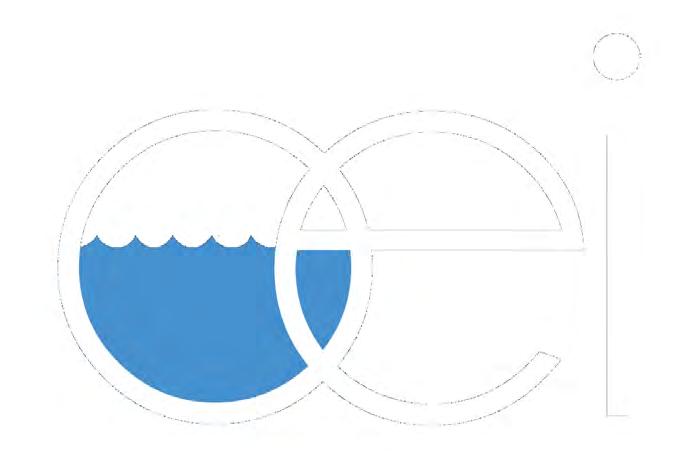

by Russell Hamilton, TWUA Executive Director

Father, we acknowledge you and bow our heads in respect as we humbly say thank You, and proclaim that You are the creator. We take comfort in knowing that You remain in charge and in control of life as we understand it. We need You, and we welcome You, in all we do. We come into Your presence seeking Your grace, calm, guidance, and forgiveness. Father, we pray for Your mercy, and we ask that You guide, direct, protect, and bless TWUA and its members. Father, thank you as we offer praise in the name of Jesus. Amen
The drought remains a concern in parts of Texas. Parts of Texas are getting rain, but some watersheds remain dry. In West Texas, Lake Spence sits at 14.8 % (- 0.5 %). White River is sitting at 37.0 % (- 2.4 %). Panhandle - Lake Meredith is sitting at 47.9 % (+1.8 %), and Greenbelt is at 9.6 % ( - 0.5 %). If you want a complete look at current lake levels, go to waterdatafortexas.org. The drought has never left for some.
Please join TWUA and Texas as we lift up those devastated by floodwaters. We pray for God's grace and strength for all affected. God, we ask that You protect those assisting and cover the impacted families with Your strength and mercy. Amen.
For those who prefer in-person training, our next TWUA regional event is August 19th in Longview. Come join Mike Norris and the other like-minded individuals in Longview.
Waco is the host site for the upcoming Annual School, which will take place from September 8th to 11th.
The last TWUA Regional Training event for 2025 will be in Lubbock from November 4th to 6th. The West Texas Board welcomes your participation and support.
Resiliency – Starting in July 2025, TWUA will offer this training module every other week. There are a total of six
resiliency modules. The overview we currently provide is one. The remaining five modules will be available soon and will help fulfill TCEQ requirements. To simplify, one of the other five modules must be completed for each license renewal. The modules can only be used once per license renewal cycle. If you take more than one module in a 3-year license cycle, you will still need two hours of something like NIMS training during each license renewal cycle.
While TWUA has the five additional modules, we are strongly considering releasing one additional Resiliency module every 3 years. For more information, check this link - https://www. tceq.texas.gov/downloads/licensing/occupational/publications/rg-637-resiliency-guidance.pdf
The 107th Annual School will occur in Waco from September 9th to 11th, 2025. As the Central Office finalizes the events, watch TWUA.org for the release of the final details. Monday will be set-up day for staff, and the Last Board Meeting and Opening Session will be on Monday, beginning at 5:30 p.m. All training sessions will begin at 8:00 a.m. on Tuesday and run until noon on Thursday.
The Story Goes Something Like This –
Yes. When saving even one life matters, imagine having saved hundreds of lives just because you had the courage to do the right instead of the easy.
This is the story of a ship in the middle of a shipwreck and a lifeboat that reached in time.
There were three ships around this sinking ship when the distress signal was being sent. The first one, Sampson, was approximately. 7 miles away from the sinking ship. Only 7 miles! They could see the sinking ship! But they turned their backs. Why? Because the crew aboard the ship had been involved in illegal hunting of seals. They turned their backs on a shipwreck because they didn’t want to get caught.
Sometimes, courage is not about insane bravery. It’s just simply about having the guts to let go of what’s important to you because someone else is in dire need. Obviously, the crew of Sampson did not possess this royal quality.
There was another ship approximately. 14 miles away from our sinking ship. The Californian saw the distress signals as it was within eyeshot, but they were surrounded by ice, and it was nighttime, and it wasn’t probably comfortable for them to move. They decided to wait till the morning for the conditions to improve. You know that ’20 seconds of insane courage’ we often talk about? When it is about someone else, those 20s become even more important!
The third ship was approximately. 58 miles away, and was already moving in the other direction, but when they heard the cries over the radio, they decided to be the lifeboat. The captain of this ship just prayed to God for direction and turned
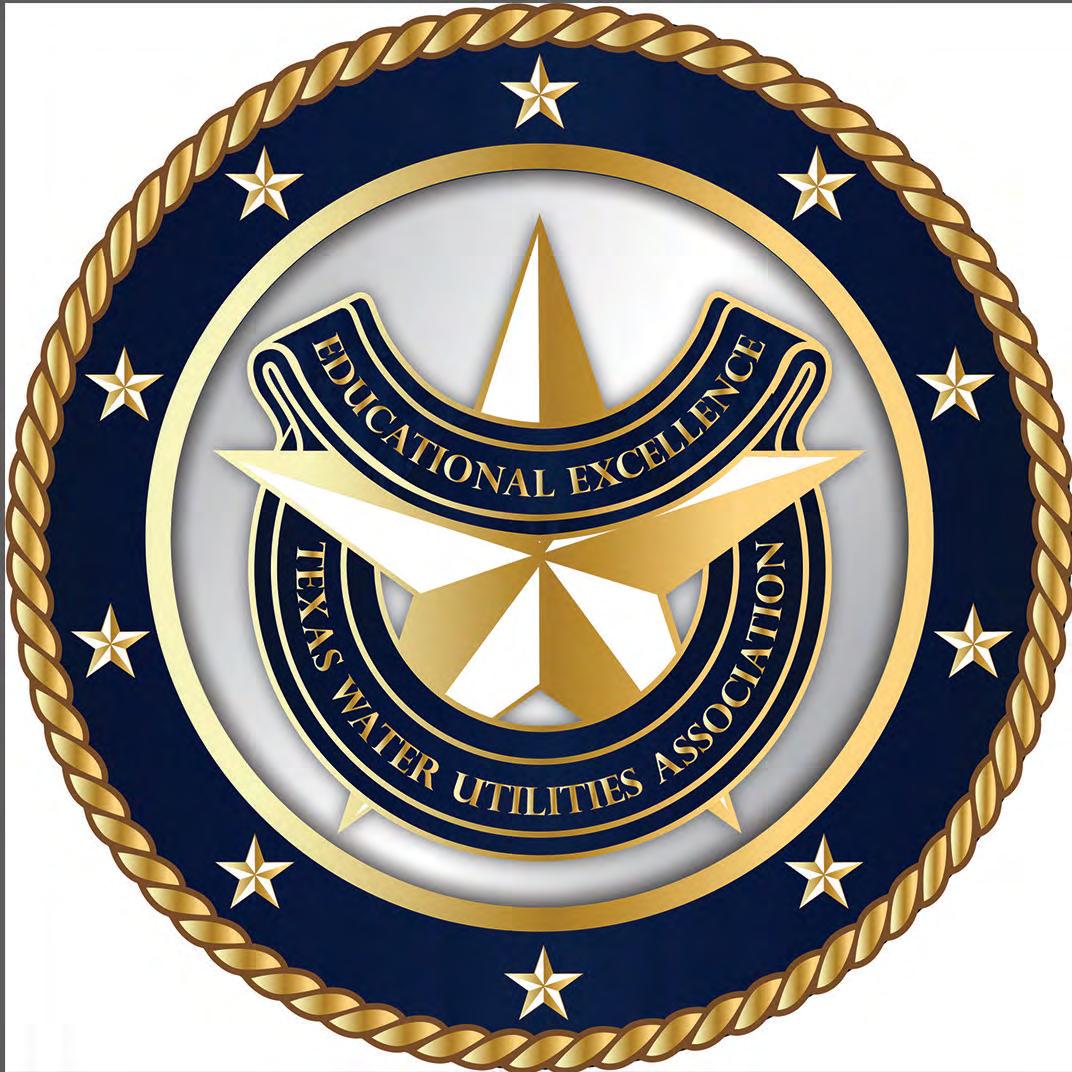
was none other than the Titanic. They saved a whopping 705 lives that night. Those 705 lives were saved because one man chose the right over the easy, that one man had the courage to look beyond his comfort. And the man deserves to be acknowledged. He is Captain Arthur Rostron, the man who simply said, “Mr. Dean, turn this ship around.”
Author unknown
Stay Safe, and Remember – we do not need all the operators in Texas to be a member of TWUA – JUST YOU ! ! ! !
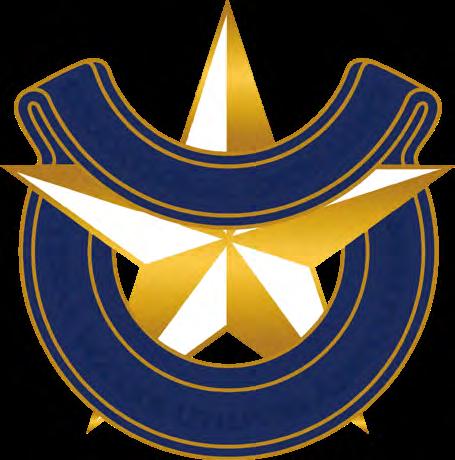


LINK TO EXHIBITOR INFO:
https://twua.org/page/Exhibitors
LINK TO STUDENT REGISTRATION FOR ANNUAL SCHOOL:
https://twua.org/events/EventDetails.aspx?id=1949215&group=
LINK TO GENERAL INFO ON ANNUAL SCHOOL:
https://twua.org/page/AnnualSchool
LINK TO MID-YEAR/REGIONAL CONFERENCE PAGE:
https://twua.org/page/RegionalConference








By Ron Perrin
According to legionella.org an estimated 56,000 to 113,000 people are infected with the Legionella Bacteria every year. The CDC list Legionella #1 on their top five contaminants of outbreaks linked to public (community) drinking water in the United States during 2010–2022. (most recent data available). The other four were Campylobacter, Giardia, Norovirus and Pseudomonas.
The The American Water Works Association recommends that potable water storage tanks and towers be cleaned every 3 to 5 years or as needed. Of course the AWWA can only make recommendations, not enforceable rules. Too many tanks go year after year without ever being cleaned. My name is, Ron Perrin I am an instructor at the Environmental Training Institute at UTA. I teach a class called Inspecting Potable water storage W308.
My professional life also includes managing a water tank inspection company we inspect over 800 storage tanks a year. This gives me a unique perspective to the world of municipal water service. Any time you inspect a storage tank or hire someone to inspect a storage tank you need to get to the bottom of it. It is not enough just to look at the outside. Checking for leaks and corrosion is part of
the inspection but the interior floor is where you will find the sediment. Sediment that accumulates on the floor of a water tank is often overlooked by engineering companies who do inspections based on the structural soundness of the facility or tank painting companies who are focused on corrosion. Our inspections always include inspection of the interior floor area with a unmanned remote underwater camera. This allows us to see the floor of the wet area and give an estimate of sediment levels supplemented with additional photo and video documentation. While over 80% of the tanks were in need of cleaning, last year only 8.09% actually committed to having tanks cleaned by our company. We see the majority of the tanks we inspect go year after year needing to be cleaned.
In Texas, Administrative Rule 290.46 (m) specifically requires an annual inspection for all potable water storage tanks by a utility worker or a contracted inspection service. As a result, utility managers get inspections funded every year. When it comes to cleaning the tanks, there is no specific rule that says how often it must be done. I see it over and over, my customers (utility managers) can get
continued on next page...
...continued from previous page
the funds for tank inspections but they get turned down for tank cleaning. Many City Administrators see it as unnecessary and costly preventative maintenance when it only takes continued increases in chlorine to remain in compliance.
While the debate goes on in city hall, a toxic soup of contaminants continue to grow undetected under the protection of the sediment on the floor of the tank. On a hot day in late summer, it may finally get to the point where it blooms and overtakes the disinfectants completely, and suddenly causes another local health crisis.
The EPA sites bacteria, viruses, protozoa, invertebrates, algae and algal toxins, and other microbes as pathogens that can use the sediment in the floor of a water storage tank as a habitat and food source. The sediment enhances the ability of microbes to thrive during storage. These findings were published on June 17, 2002 by the EPA Office of Water. The document was a white paper titled, “Health Risk from Microbial Growth and Biofilms in Drinking Water Systems”. The 50 page document goes into great detail stating that a wide range of primary and opportunistic pathogens have demonstrated the ability to survive, and that “significant microbial activity may occur in accumulated sediment”.
Implemented in 2012 the Revised Total Coliform Rule (RTCR) requires assessment and corrective action when there are indications of coliform contamination in water supplies. Under the RTCR, there is no longer a monthly maximum contaminant level (MCL) violation for multiple total coliform detections. New revisions require systems that have indicators of coliform contamination in the distribution system to assess the problem and take corrective action.
Appropriate corrective actions may reduce cases of illnesses and deaths due to potential fecal contamination and exposure to waterborne pathogens such as viruses, bacteria, protozoa and multi-cellular parasites. The rule refers to “The Distribution System” as the responsible party for assessment and corrective action. Of course, that means the Water Utility Manager or the System Operator is now required to conduct effective assessments of the
water supply, and to take appropriate corrective action when there are indications of coliform contamination.
Now that you have read this article, finding the “appropriate corrective actions” may be much easier to think about. Start off with a complete inspection of your facility looking for any breach in your system. The most common problems are holes around the top roof seams of tanks, broken, corroded, or missing vent screens; and the most common of all: sediment covering the interior floor. Basic maintenance and housekeeping may be the quickest way back into compliance, or the best way to stay in compliance in the first place.
About the Author:
Ron Perrin is a instructor at the Environmental Training at UT Arlington, and the owner of Ron Perrin Water Technologies in Fort Worth Texas. Since 1997 his company has inspected over eight thousand water storage tanks and towers in 14 states. In 2016 Ron was ask to develop and instruct a class on Potable Water Tank Inspection for The Environmental Training Institute at UT Arlington. Ron may be contacted through his web site at www.ronperrin.com or call (817) 377-4899


Inspector on Potable Water Storage tower. #3 ©Ron Perrin 2008

Sediment Being Removed from Potable Water Storage tower. #1 ©Ron Perrin 2008
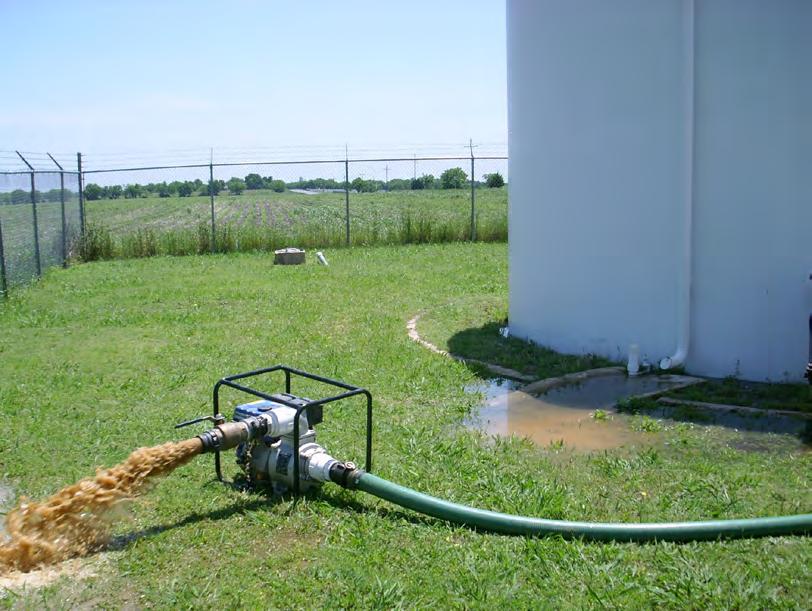
Sediment Being Removed from Potable Water Storage Tank. #2 ©Ron Perrin 2008
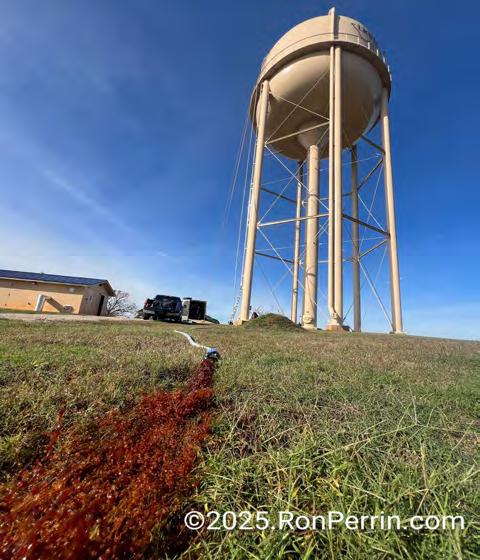
Sediment Removed from Potable Water Storage tower. #4 ©Ron Perrin 2025

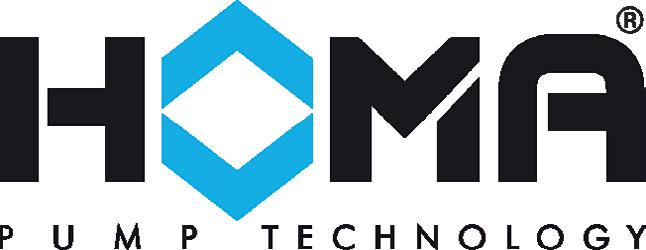

Our $10M inventory means lead times in days, not weeks or months
Superior solids handling impellers to keep up with modern wastewater demands
HOMA’s PMR5 relay plugs into existing Mini-Cas Socket to simplify your retrofit
A wide range of competitor adapters allow for installation of your new HOMA pump without costly downtime







Written by OSHA Staff
A pallet slips from a forklift and crashes to the floor of a busy warehouse. No one is hurt, but the load is ruined and production stops for an hour. Two weeks later, in the same facility, a second pallet falls and strikes a coworker’s leg, sending the employee to the hospital. One event is an incident; the other is an accident, and the company is expected to understand the distinction, record each event correctly and investigate the cause. Failing to do so invites fines, legal exposure and future harm.
Across every industry, accurate classification drives better prevention. When supervisors and recordkeepers know the exact difference, they can target hazards before lives, limbs or profits are lost. The explanations below follow federal definitions, show how the terms apply in real workplaces and explain the training that supports full workplace safety.
Incident is OSHA’s preferred umbrella term for any unplanned, undesired event connected to work. It includes:
• Near misses – no injury, no damage, but clear risk
• Property damage events – broken equipment or ruined product
• Environmental releases – spills, leaks or emissions
• Minor injuries – cuts or bruises that require only first aid
An accident is a subset of incidents that produce serious results. Federal guidelines focus on accidents that involve:
• Death
• In-patient hospitalization
• Amputation
• Eye loss
Every accident is an incident. Not every incident escalates to an accident — but each one offers data that can stop the next tragedy. Recording both categories accurately is step one in a prevention program.
Quick Definitions at a Glance
Understanding the distinctions between incidents and accidents is crucial for accurate classification and targeted prevention in the workplace.
OSHA uses “incident” as an umbrella term to describe any unplanned event that disrupts normal operations. These events come in various forms, such as near misses, property damage, environmental releases and minor injuries. A near miss, for example, might involve two forklifts narrowly avoiding a collision. A small chemical spill would be classified as a property damage event, while a hand laceration treated with basic first aid would fall under minor injuries.
continued on next page...
...continued from previous page
Accidents, on the other hand, are a specific subset of incidents that result in more severe consequences, such as significant injuries or illnesses. OSHA focuses on accidents that involve death, inpatient hospitalization, amputation or eye loss. For instance, a worker hospitalized after being caught in a conveyor belt or an employee who fractures a hip after a fall would categorize these events as accidents.
While every accident is also an incident, not all incidents escalate to the level of accidents. However, each incident provides valuable data that can help prevent future occurrences. By clearly understanding and documenting these distinctions, organizations lay the groundwork for a safer workplace.
OSHA mandates rapid reporting for the most severe outcomes and systematic logging for a broader set of injuries and illnesses.
Reportable Events
• Fatality — must be reported within 8 hours
• Inpatient hospitalization, amputation or eye loss — must be reported within 24 hours
Recordable Events
• Any reportable event
• Injuries that lead to days away, restricted duty or job transfer
• Medical treatment beyond first aid
• Loss of consciousness
• Diagnosed significant injury or illness
Accurate logs require familiarity with OSHA Form 300, 300A and 301. Completing the recordkeeping course equips safety managers, HR staff and claim administrators with the rules, exemptions and form instructions necessary to stay inspection-ready.
Fix Leaks Fast: A single dripping faucet can waste 3,000 gallons a year—patch it up to keep Texas water where it belongs.

Smart Irrigation: Use drip systems and water early in the morning to cut evaporation in our scorching summers.
Native Plants: Landscape with drought-tolerant Texas natives like bluebonnets or yucca to slash outdoor water use.
Harvest Rain: Install a rain barrel to capture runoff for your garden—every bit helps in a dry spell.
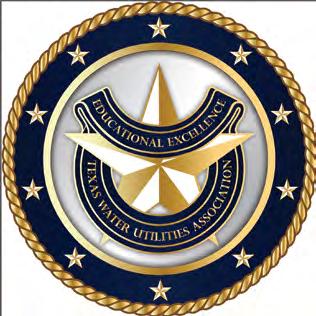


Resiliency is the ability to withstand, adapt to, and recover from adversity, challenges, or significant stress. It is not the absence of difficulty but the capacity to face it and emerge stronger, wiser, and more capable. In both personal and professional contexts, resiliency determines whether an individual, team, or organization can navigate hardship without losing effectiveness or purpose.
While some aspects of resiliency may be influenced by personality traits or life experiences, it is also a skillset—one that can be developed, strengthened, and refined over time.
Resiliency is multi-dimensional, involving emotional, mental, physical, and social components.
1. Emotional Regulation Resilient individuals manage emotions effectively, especially under pressure. This does not mean ignoring or suppressing feelings, but rather understanding and processing them in a way that allows rational decision-making. Emotional regulation is essential for avoiding reactive choices and maintaining composure.
2. Optimism with Realism Hope is a critical ingredient in resiliency, but it must be grounded in reality. Overconfidence without strategy can be just as damaging as pessimism. Resilient people maintain a positive outlook while acknowledging the challenges ahead, balancing optimism with preparation.
3. Adaptability Change is inevitable, and resilient individuals are able to pivot strategies, learn new skills, and adjust to evolving circumstances. This adaptability is not about abandoning goals but finding alternative paths to achieve them.
4. Perseverance Grit—the willingness to continue despite setbacks—is a hallmark of resilience. This means staying committed to long-term objectives while taking the necessary short-term steps to overcome current barriers.
A resilient mindset views challenges as opportunities for growth rather than threats to security. Psychologist Carol
Dweck’s concept of a growth mindset—the belief that abilities can be developed through dedication and hard work—aligns closely with resiliency. This mindset fosters problem-solving, curiosity, and a willingness to learn from failure.
Key mental approaches include:
• Reframing problems into learning experiences.
• Focusing on controllables instead of becoming consumed by what cannot be changed.
• Practicing gratitude , which helps maintain perspective during hardship.
Life’s challenges—such as illness, loss, financial setbacks, or relationship breakdowns—can test emotional endurance. Resiliency allows individuals to navigate these difficulties without being defined by them. This is not about avoiding pain but finding ways to move forward despite it.
Practical strategies for building personal resilience include:
• Building a strong support network of friends, family, and mentors.
• Maintaining physical health through exercise, sleep, and nutrition, as the mind and body are deeply connected.
• Engaging in self-reflection to understand strengths, weaknesses, and personal coping patterns.
In a professional environment, resiliency influences job performance, leadership capability, and overall team dynamics. Workplaces are subject to constant change— technological advancements, shifting markets, and unexpected crises. Employees with strong resiliency remain productive and solution-oriented under these pressures.
For leaders, resiliency sets the tone for the entire organization. A resilient leader:
• Communicates transparently during crises.
continued on next page...
...continued from previous page
• Provides reassurance while guiding strategic adjustments.
• Models adaptability, encouraging others to follow suit.
At the organizational level, resiliency can be strengthened through:
• Training and development in problem-solving and change management.
• Scenario planning to prepare for potential disruptions.
• Fostering a culture of learning rather than blame after mistakes.
Resiliency and Community
Beyond the individual and workplace, resiliency is vital for communities. Natural disasters, economic downturns, and public health crises require collective adaptability and recovery. Communities with strong networks, shared resources, and a sense of unity recover faster and more completely.
Community resiliency depends on:
• Preparedness through proactive planning and resource allocation.
• Mutual aid systems, ensuring vulnerable members are supported.
• Effective leadership that inspires trust and cooperation.
Barriers to Resiliency
Several factors can weaken resilience:
• Chronic stress without opportunities for rest or recovery.
• Isolation from supportive relationships.
• Fixed mindset, which limits the ability to adapt.
• Poor health habits, which drain physical and mental energy.
Recognizing these barriers is the first step in overcoming them. Addressing them often requires intentional lifestyle adjustments, therapy, or professional coaching.
While some people naturally possess higher resilience, it can be cultivated through practice and deliberate effort. Steps include:
1. Self-Awareness – Understanding how you typically respond to stress helps you identify where to improve.
2. Skill-Building – Enhancing problem-solving, communication, and time management skills increases your capacity to handle challenges.
3. Stress Management – Mindfulness, meditation, and breathing exercises can help regulate emotions.
4. Goal Setting – Breaking large challenges into achievable steps provides a sense of progress and control.
5. Learning from Setbacks – Instead of viewing failure as a defeat, treat it as a learning opportunity.
Resilient individuals and organizations enjoy several advantages:
• Sustained performance under stress – Productivity is maintained even in challenging circumstances.
• Better mental health – Resilience protects against burnout, anxiety, and depression.
• Faster recovery – Bouncing back from setbacks becomes more efficient.
• Greater confidence – Repeatedly overcoming adversity builds trust in one’s own abilities.
Conclusion
Resiliency is both a mindset and a skillset—an essential quality in navigating life’s inevitable challenges. It thrives on adaptability, perseverance, and a willingness to learn from experience. Whether applied to personal hardships, workplace challenges, or community crises, resiliency ensures that individuals and groups can endure difficulty and emerge not just intact but strengthened.
In an unpredictable world, resiliency is not merely a niceto-have trait—it is a survival tool. And like any tool, it works best when sharpened, maintained, and used with intention.
If you’d like, I can also create a visual diagram showing the key pillars of resiliency for presentation or training purposes. That would make this content more engaging and memorable.


IF NOT, WHY? Do you know that TWUA members:
• Receive a discount (from 10% to 35%) on TWUA training
• Receive a subscription to the monthly TWUA Journal
• Receive free updates on regulatory and technology changes
• Have easy access to industry matter experts, vendors, and product providers
• Have the opportunity to apply for scholarship assistance for yourself or your legal tax dependent children
MEMBERSHIP PLANS BEGINNING AT $60/YEAR!! CONTACT TWUA AT (888) 367-8982 TO SIGN UP.

















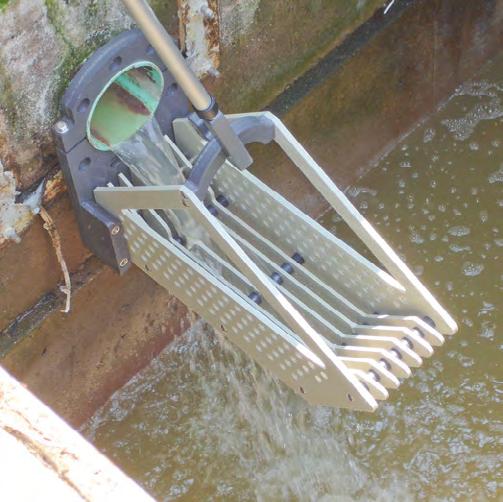











To register for any TWUA Training Classes – the preferred method of registration is using the online computer based electronic process, activated by clicking on specific event(s). For those who do not have internet as an option you may complete the registration form and fax to (512) 459-7124 and additionally you may contact TWUA Central Office @ 888-367-8982. Please Note – Due to recent increases for training materials, class costs have changed. Early Bird preregistration is defined to mean 30-days prior to any training event. All registrations received after the Early Bird period must pay additional registration fee. Central Office strongly encourages everyone to take advantage of the Early Bird pricing and utilize the computer based (electronic) registration.
20-Hour Classes: (Early Bird Pre-registration) $325 member $425 Non-member Onsite $375 member $475 Non-member
24-Hour Classes: (Early Bird Pre-registration) $385 member $485 Non-member Onsite $435 member $535 Non-member

https://twua.org/online-class-date

https://twua.org/regional-school-date

https://tmts.twua.org/calendar

Chemistry:
1 Dry # of MgOH2 = 1.70 Lbs of Alkalinity (CaCO3)
1 Dry # of MgOH2 = 1.35 lbs of NaOH (Caustic)
1 Dry # of MgOH2 = 1.27 lbs of CaOH (Lime)
• Sulphur Springs sales@garrisonminerals.com
Storage and dosing equipment for any size plant avaliable. Call today for a free sample and information. www.garrisonminerals.com





GIS Mapping and Asset Management Services Drinking Water Regulatory Support




Pro-Active Leak Detection Preventive Maintenance Programs System-Wide Water Accountability Assessments
Benefits of Utilizing SAMCO Services
Reduce water production and distribution costs
Improve overall efficiency and gain knowledge of your distribution system
Improve water quality and assure adequate pressure to help safeguard public health
Improve public water system compliance with State and Federal regulations
Using state-of-the-art technologies, our experienced technicians offer solutions well beyond traditional leak detection capabilities to help you improve the performance of your utility system. 901 Mopac Expressway South, Suite 300 Austin, TX 78746 512-263-7043 (Office) 512-751-5325 (Mobile) sgodfrey@samco-leakservice.com www.samco-leakservice.com These advanced
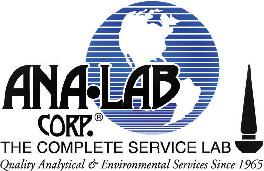




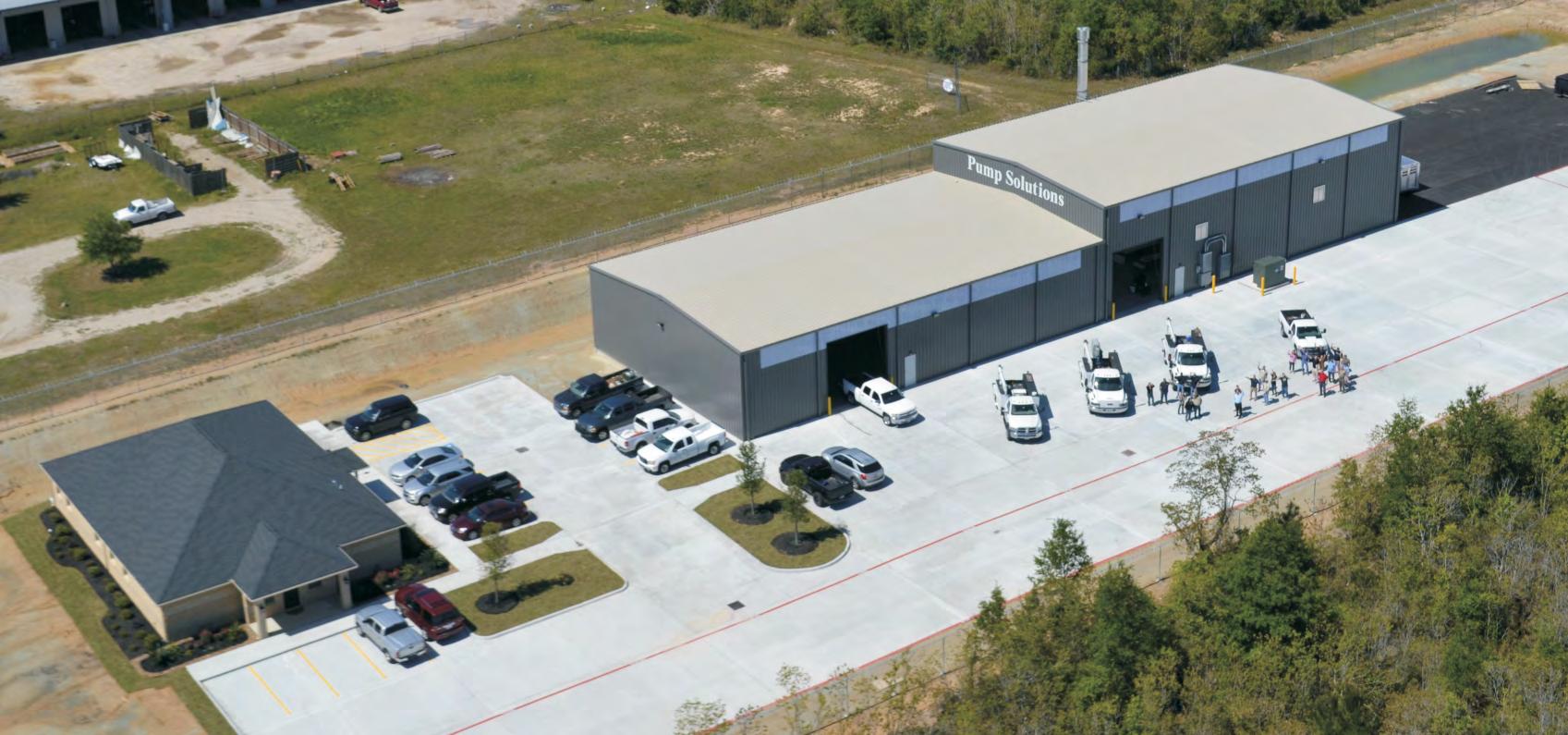
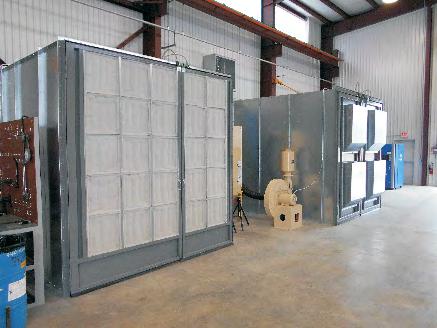
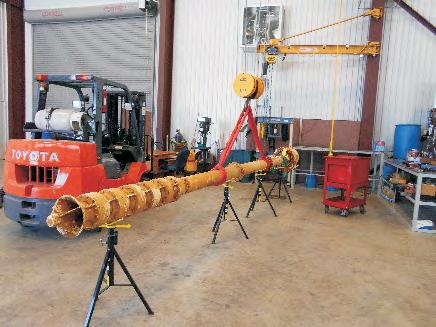


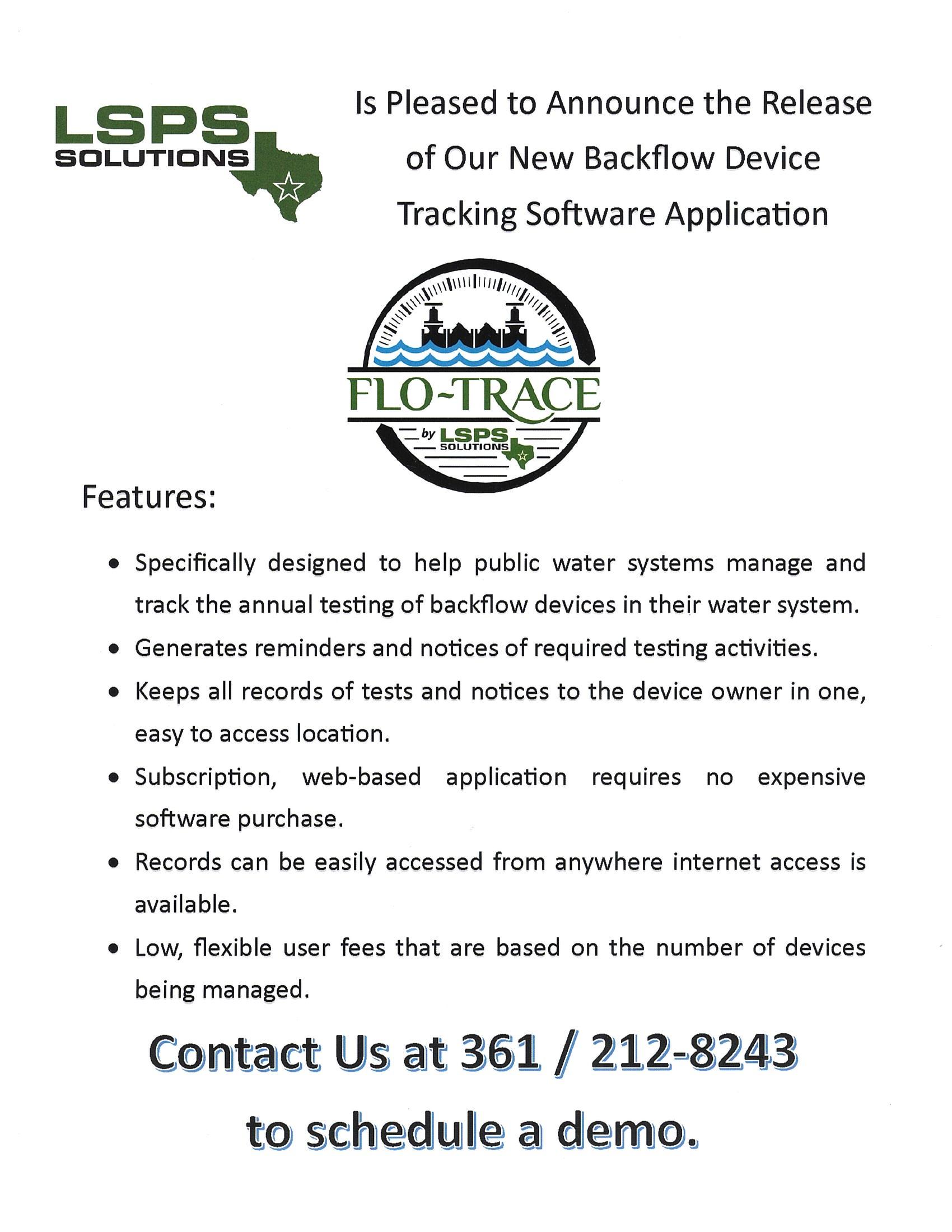





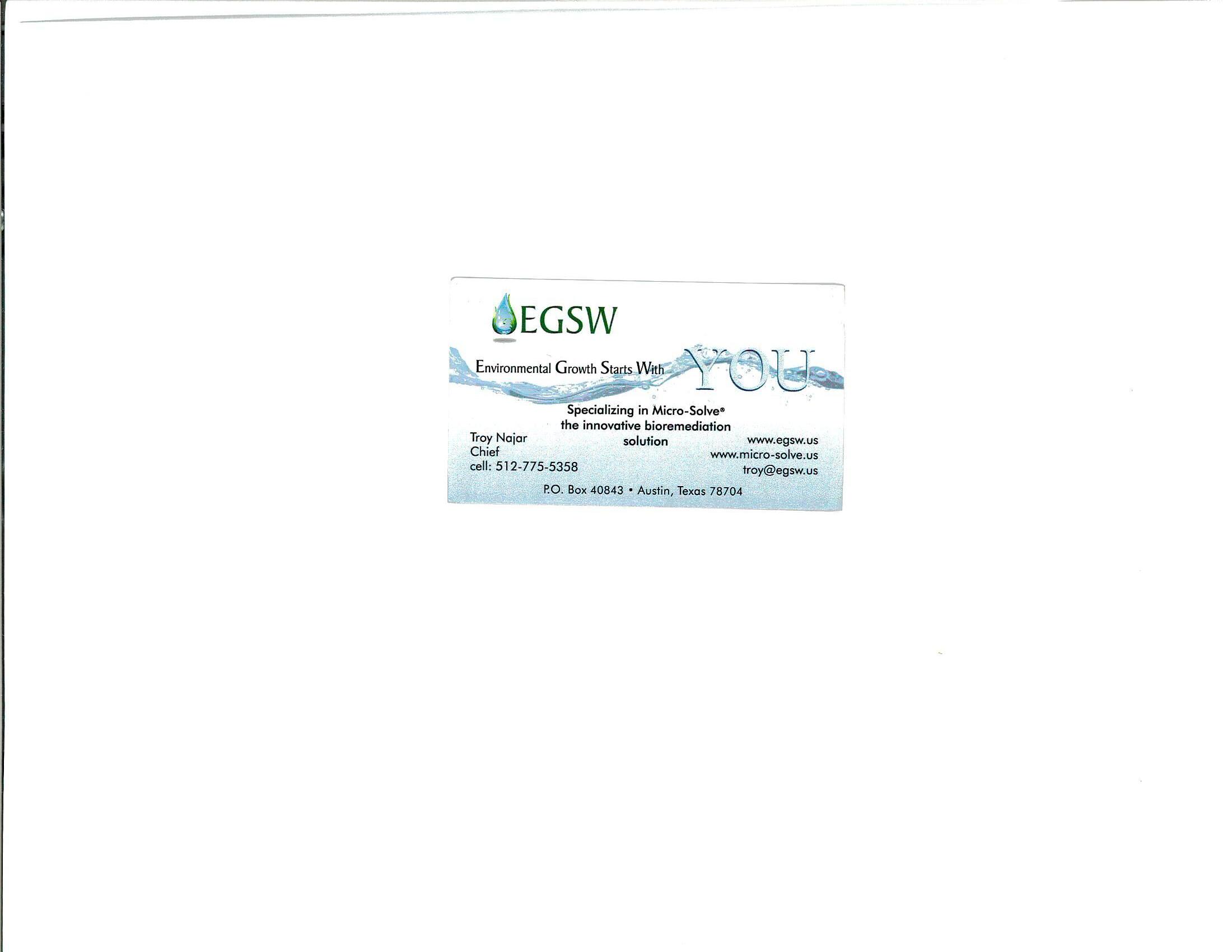
Use this form to:
1) Join TWUA "At Large"
2) Join TWUA and a District/Chapter
3) Renew your TWUA Membership
Please Print Clearly
Application for:
o Active Member
o Full-Time Student
o Retired Member
o Membership Renewal
o New Member
"At Large" or District/Chapter Name:
Membership for year 20____
Name:
SS# _______ - _______ - __________
Home Address:

City: State: Zip:
Home Phone: ( )
Work Phone: ( )
E-Mail Address:
Employer:
Job Title:
Amount of Dues Enclosed: $
Signature of Member:
Today's Date:
A portion of your TWUA Dues is allocated for a subscription to the Texas Water Utilities Journal.
Submit all dues to the TWUA Central Office: TWUA Central Office, 210 East Hwy. 79, Suite 101, Hutto, Tx. 78634
For more information, Ms. Adee at: 512-279-8129. Fax: 512-459-7124.
1. BEING ON TIME – Shows reliability and respect for others.
2. ATTITUDE – A good attitude can change everything
3. WORK ETHIC – Hard work beats talent when talent doesn’t work hard.
4. EFFORT – Giving your best is always within your control.
5. HONESTY – Builds trust and respect.
6. ACCOUNTABILITY – Taking responsibility for your actions earns trust.
7. BEING PREPARED – Thinking ahead and being ready for what’s next.
8. ENERGY – Bring enthusiasm and a positive attitude.
9. CONSISTENCY – Showing up and doing your best every day.
10. GOING THE EXTRA MILE – Doing more than expected makes you invaluable.
11. HELPING OTHERS – Small acts of service can make a big difference.
12. KINDNESS – Costs nothing, yet means everything.
13. BEING A GOOD LISTENER – Truly hearing people creates strong connections.
14. BEING COACHABLE – Accepting feedback and learning from mistakes.
15. PROFESSIONALISM – How you carry out your job duties and the manner in which others see you leave a lasting impression.
REMEMBER – YOUR IMPACT LEAVES A LASTING MARK. WHAT WILL YOU BE REMEMBERED FOR?
BACKFLOW PREVENTION ASSEMBLY TESTER
AGUIRRE, BENJAMIN LEE
ARMSTRONG, TYLER
BAGLEY, KRISTA MARIE
BAKER, CODY
BALDERAS, ROLAND V
BARR, CARSON
BROOKSHIRE, LAVENUEL
BROWN, AUSTIN R
BUBAK, TYLER
BUSTILLO, MELVIN JOSE
CANALES, IVAN
CASTILLO, SAUL ERNESTO
CHAVEZ, JESSE PHILLIP
COTTRILL, ANTHONY JOSEPH
DAVILA, STEPHEN MICHAEL
DEOLLOZ, LEON PIERRE
EVANS, HOWARD CHARLES
FERNANDEZ, ODIN
FRANCIS, JEREMIAH J
FUGITT, MARY JANE
GARCIA, EUSEBIO
GARCIA, MICHAEL
GARZA, GEORGE
GONZALEZ, LUIS
GROVES, JASON RICHARD
GUZMAN, ERIC
HARDIN, JOHN W
HARGER, LELAND C
HAYES, JAMES
HERNANDEZ, FRANK
HODGES, KENNETH BRITT
HULCY, ANDREW
HUMMER, MYLES ALEXANDER
JIMENEZ, JUSTIN
KNIPPA, JAMES A
KNIPPA, TAMMY
LUGO, CARLOS ENRIQUE
LUGO, OMAR
MANZANO, ISAI
MARROQUIN, SEAN CODY
MARTINEZ, JOSE A
MCCONATHY, JACOB
MCCULLOUGH, KERRY
MCFARLAND, ROBERT C
MEDELLIN-TURNEY, ISAAC CODY
MELENDEZ, ANGEL ENRIQUE
MILAM, ZACHARY CLAYTON
MORALES, VICTOR
MORGAN, EASTON GEORGE
OKEEFE, PHILLIP J
PAVIA, LARRY JR
PEREIRA, CHASE ALLEN
PLASKON, JASON ROBERT
PONCE, CARLOS
POPE, TREVOR
PROFFITT, JAMES LEVI
RAMIREZ, IRVING
RAMIREZ, JUAN TOMAS
RAMIREZ, LEONARDO PAULIN
REZA, JOSEPH ALEXANDER
RHOADES, PHILIP
SALAS, ARMANDO
SANTAMARIA, ELVIS A
SEXTON, WILLIAM
SHULTZ, ALEXANDER J
SOTO, ELOISA
TANGO, PILLY
TURNER, CHRISTOPHER CHARLES
TYE, DARRELL
VASQUEZ, ADOLIO
WOOD, ZAK PARRISH
ZAIONTZ, CHADWICK A
ZAYAS, LEO L
CUSTOMER SERVICE INSPECTOR
ARGUETA, BRAULIO
BEYETTE, MICHAEL JOE
COLEMAN, JASON P
DEAN, PAUL A
GAITAN, RAPHAEL
GARCIA, ERIC ANTHONY
GARCIA, JOVANNY ISSAM
HOOT, BRYAN R
ISBELL, JEREMIAH TIMOTHY
JAMES, CLINTON RUSSELL
MAIDEN, JASON MICHAEL
MCGASKEY, KENNESHA D
NIX, JONATHON W
REEVES, KEVIN D
TAYLOR, CAMERON SPENCER
VALDEZ, ADRIAN GERARDO
VELEZ, JACOB
WADE, JOHNATHAN
WARNER, GREGORY
WOLF, ISAAC
GROUND WATER TREATMENT OPERATOR
CLASS B
AGUILAR, JOSH M
BRYAN, AUSTIN J
CLEMENTS, PATRICK
COLORADO, JOSE A
CRAWLEY, ROBBIE A
ESCOBAR, JORDAN
FALCON, EDWARD
FLORES, JOSE A JR
JOBE, JAMES M
MALONEY, KEVIN J
MEEKS, NICHOLAS R
PEREYRA, MARCOS
TOVAR, VINCENT DANIEL
VILLA, DANIEL
YOUNG, JOSEPH W
CLASS C
AGUILAR, CRUZ E
COTTEN, CODY ALAN
COWART, DANIEL COLTON
DAVIS, JACOB
FADDIS, TAYLOR
FREEMAN, GREGORY
GONZALEZ, JOSUE MISSAEL
HARRIS, MARCUS TREMAINE
ISBELL, SARAH TERESA
LLOYD, FRANK T
MARTIN, CAMERON
MEDINA, JAIME RENE
MITCHELL, GREGORY C
OCONNOR, RILEY
PENA, JOHN M
REDWINE, AUSTIN
RICH, MELISSA LYNN
ROSE, QUINTEN
SENDEJAS, LOUIS RANGEL
SLAY, DALLAS
SPARROW, DURELL EDWARD
STRICKLAND, DANIEL
TRUJILLO, JEREMIAH
WALKER, CLINTON RUSSELL
WARDEN, CHARLES
SURFACE WATER TREATMENT OPERATOR
CLASS B
ANDERSON, KERMIT CARSON
CARTER, COREY DAVID
CLARK, SHANE M
GARCIA, GEORGE
HARLESS, KEVIN M
OCCHINO, JOHN P
TAYLOR, KATHLEEN JEAN
TREVINO, JEREMY SR
CLASS C
ARREDONDO, ARMANDO
CASTILLO, IGNACIO
DAGNINO BARAJAS, ANDREW
DELACRUZ, DAMIAN
DILL, MATTHEW STEVEN
GONZALEZ, ANTONIO
HOCK, TOMMY
HOUGHTON, NICK
HUNT, JASON
ISOM, DALLAS
MCCORMICK, JESSICA ANN
MECHAM, JEREMIAH
ORTEGA, CHRISTOPHER
PETERS, COPELAND WYATT
PIPPINS, ZSAPORA DEANA
REID, CARSON TUCKER
SAYERS, JOEL
SIKES, CAESON LLOYD
VEGA, JESUS
WILKINSON, RICHARD W
WATER DISTRIBUTION OPERATOR
CLASS B
BROWN, CHRISTOPHER A
CASSO, JOHN L
DRENNAN, KEVIN J
FOLKS, MAX MICHAEL
GADBURY, JACOB K
GALLEGOS, JUAN
GAYDA, RICHARD
GORTNEY, MICHEL B
GRIFFIN, MELANIE
HARE, THOMAS
HULL, DYLAN
KRUMHOLZ, DIETRICH K
MARTIN, FRANK HOUSTON
MARTINEZ, TIMOTEO S
RAMONDELAO, ALEXI R
RETIZ, ASSAEL D
WEST, MICAH D
CLASS C
ABALOS, CHRISTIAN ADAM
ALLOY, MARC COLLIN
ANDERSON, JUSTIN MATTHEW
ARGENBRIGHT, COREY
CASTELLANOS, HUMBERTO SOLORIO
CHAIREZ, ESTEBAN
CHAMBERS, JUSTIN
COLLINS, CALVIN
CORONADO, RANDY
COWART, HOBIE
DELAFUENTE, BARBARA
DUNN, KEVIN
DURAN, JOSEPH
EIMER, ADAM NICHOLAS
FLOWERS, SAMUEL
FORD, MIKE
FORTNER, CALEB WAYNE
GARCIA, FERNANDO
GARCIA, JOZUA ALIKZANDER
GARCIA-JUAREZ, DAVID
GEORGE, BRYCE
GONZALEZ, EDUARDO
GOREE, JGOTTI
GRILL, DALTON
GUTIERREZ, ANTHONY
GUTIERREZ, LEONARDO NATHANIEL
HERRERA, LORENZO JR IPINA, RAUL
JACINTO, ROBERT
JACKSON, RICHARD
JIMENEZ, RICARDO E
JONES, STEPHEN
KROON, CALEB THOMAS
LAWS, TYRON TYREESE
LINDOP, KELLY MARIE
LOPEZ, SAMUEL RAYMOND
MAISONNIAL, ARNAUD PAUL
MARTIN, BLAKE
MARTINEZ, NATHANIEL AUSTIN
PROBASCO, GLEN
RODRIGUEZ, BRYAN
SAVAGE, DYLAN MOSES
SERVIN, PRICILLA
SHOWS, BRIAN MATTHEW
TAVU, RENATO
VARGAS, JOSE FRANCISCO
VELASQUEZ, CESAR
WATKINS, JACOB
WILLIAMS, BRYCE G
WATER OPERATOR
CLASS A
CRAWLEY, RUSSELL W
EVERS, FRANK T II
GRIFFIN, JOSHUA D
KOHUTEK, CASEY DAN
LAHR, COLTON
LITTLE, JAMES J
MARCHAN, FRANK W III
MARQUEZ, WILLIAM J
SALDANA, JEREMIAH R
SANCHEZ-MONJARAS, IVAN F
SKINNER, JIM
VICK, NATHAN G
WOOTEN, JORDAN T
CLASS D
AGUILAR, BRAXTON
AGUILAR-MORRIS, BOBBIE
ALLEN, DARYL J
AMEZAGA, GILBERTO ADRIAN
ANDREW, ETHAN
ARGUELLO, SANTIAGO GARCIA
BARRIENTOS, BRITTANY
BARTON, ANDREW MICHAEL
BEAMAN, JOSHUA RYAN
BECKETT, MICHAEL
BETHEL, TYRONE D
BLAIR, LUKE
BRADSHAW, TY COLTON
BROCK, BRANDON D
BROWN, TY ALAN
BUNTON, CODY WAYNE
BURKS, CHARLES LEE
CAMPBELL, MATTHEW
CEARNS, CHRISTIAN T
CHARLES, THOMAS A
CHATMAN, LARRY
CLARK, AMY LYNN
CLARK, BRANDON MATTHEW
COIN, AXEL JAY
COLEMAN, CYRUS
COLORADO, JUAN SIMON
CONRADI, MAXWELL FREDERICK
COSTA, CHARITY
COX, JACOB
CRAWFORD, CHRISTIAN
DACY, MORGAN BRYAN
DEEN, JOSHUA
DERRETT, MAURICE
DIAZ, DEVON MARCIAL
DIXON, BRIAN B
DOMINGUEZ, FREDRICK
EHRLISH, STEVEN MICHAEL
ELGUEZABAL, JOHN LEONEL
ELLISON, ETHAN WAYNE
ESTRADA, LUIS
FOSSATI, TARYNN
FOURNIER, BRYAN FRAZIER, DALTON
FUENTES, DAVID
FUTRELLE, CASSIDY
GAIR, CODY D
GARCIA, JAMES
GARZA, DAVID
GARZA, JASEN
GARZA, JESUS
GERMON, GRACE KATHERINE
GILBREATH, GARY J JR
GOMEZ, ROBERT RENE
GREEN, KATHRYN
GUERRA, LUIS ALEJANDRO
GUERRA, MICHAEL
GUILLEN, RICHARD
HALL, BRADLEY
HENSLEE, ZACKERY WAYNE
HERNANDEZ, ADRIAN
HILL, ARTHUR EDWIN
HORNSBY, CHRISTOPHER
IRBY, JEREMY
ISGITT, JONATHAN LEE
JACINTO, JOSE
JARNAGIN, KALEB
JENKINS, SETH BRANDON
KILE, JAMES
LANARO, JAIME
LOCKARD, BRAEDYN
LUQUIN, KENYA MICHELLE
MARTINEZVAZQUEZ, OSWALDO
MARTINI, JOSHUA MICHAEL
MASON, LADARRIUS MARCQUIS
MCBRIDE, LEONARD
MCELHANEY, SETH
MENDOZA, CHRISTIAN MENDOZA, SEBASTIAN
MIRELES, JOSE
MITCHELL, JAMES
MORENO, JULIAN
MUZQUIZ, GIOVANNA
NARANJO, GABRIEL LEE
NICHOLLS, WILLIAM OLIVER
NUNEZ, ERIC RICARDO
OLIVARES, CESAR
ORTEGA, ANGEL
OWEN, KEITH
PARKER, ELIJAH SAMUEL
PEREZ, JOSE ALEJANDRO
PICKETT, JILL
QUINTERO, EDSON ANTONIO
RICHEY, MATTHEW LEE
ROBERSON, ISAIAH JAQUIN
ROBLES, ROBERT
RUIZ, RANDY
SANCHEZ, HERMAN
SANCHEZ, JONATHAN
SEAMSTER, DEMOND
SEIDEL, DOUGLAS
SHELBOURNE, CONNOR
SISK, JASON
SOTO, JESSE
STERN, EMILY J
STEWART, COBY MITCHELL
STREBLER, ZEPHANIAH
STRICKLAND, JAMES
TAYLOR, RYAN KEITH
TEAL, JACOB MICAH
TEDFORD, CECIL G
THOMPSON, ERIC LAMAR
TREVINO, JOEL
TRISTAN, CHRISTOPHER M
TURPEN, RAYMOND
TYREE, MASON
URODA, MICHAEL
VASQUEZ, ALEXIS
VELASQUEZ, IRVING
WAITE, JONATHAN D
WALDROP, MASON
WALKER, JOSHUA
WALKER, MICHAEL TERRELL
WALLACE, ELIAS
WARD, MICHAEL
WATTS, JOSHUA NEAL
WILLIAMS, MELVIN RAY
WILSON, SCOTT
YOUNGVALL, LEE
ZAMORANO, ABRAHAM
ZAVALA, SERJIO
ZEMP, TAYLOR
ZIMMERMAN, TREY
WASTEWATER COLLECTION OPERATOR
COLLECTIONS I
ACEVEDO, KRISTOFER
ARAIZ, CARLOS
AVILA CERVANTES, ERIKCSON
BERUMEN, ARTURO ISMAEL
BOYD, ALEXANDER JEROME
BRADLEY, MARK
CHAVEZ, ARTURO
CIRLOS, RYAN ANTHONY
FEASTER, JOSHUA
FITZGERALD, BRANDON WAYNE
GOMEZ, MAXIMILIANO
JARRED, ALEXANDER
JOHNSTON, JASON
KAULFUS, COLBEY D
LABAUME, ANDREW WILLIAM
LOPEZ, OSCAR OMAR
LUNA, RUDOLFO ALLEN
MARTIN, JOSHUA
MORALES, LUIS CARLOS
ORTIZ, JOSE ALONZO
ROGERS, AYDEN
ROJAS, KRYSTOPHER LARS
SANTANA, ENOC
SEIGLER, JORDAN
SHEALEY, AL Q
SHELTON, TERRY DUANE
TURNER, DWAN
VOGEL, ROMAN LOUIS
WILSON, ROBERT RAYMOND
CLIFFORD
COLLECTIONS II
BLACK, CHRISTOPHER DEVONNE
CAPP, KYLE J
CARNLEY, CASEY ROLAND
CHOUFFET, CODY
DEBRUIN, CHRISTIAN SCOTT
DELTORO, GUSTAVO
FERNANDEZ, MARK
GARCIA, MICHAEL A
GRABEEL, NICHOLAS WAYNE
HEALY, BAYLAND DEVYN
HERNANDEZ, MICHAEL RAMON
LOZA, ERIK
MARTINEZ, JASON
PEACOCK, ZACHARY
PEOPLES, NICKOLIS
PERKOVICH, KENNETH A
PROCTOR, REBECCA MELANIE JOELLE
STONE, CODY BRICE
UMPHLETT, ROBERT TODD
COLLECTIONS III
BABB, JON KRISTIAN
BOYL, THOMAS
GOIN, BRICE
HERNANDEZ, GERARD
HOWARD, BRAD
MACE, NICHOLAS G
PAYNE, JAMES D
PIZANA, AARON
PRICE, TERRY D
REYES, ELIAS
WASTEWATER TREATMENT OPERATOR
CLASS A
ARNOLD, TYRONE
BATES, THOMAS K
BRAZILE, TIMOTHY J
DAVIS, JARED R
DODSON, JONATHAN
GAMEZ, ADALY A
MENDEZ, CHRISTIAN D
SANCHEZ, CHRISTOPHER B
SNYDER, MICHAEL
WEST, TAMMY
WILSON, DONALD J
CLASS B
HANSEN, JEFFREY D
HENDERSON, DAVID
SECHREST, DAVID A
CLASS C
ARJONA, FLAVIO
BONAR, CLAYTON
BROWN, JEREMY
BUTLER, RANDALL EDWARD
FALLEN, BRYNN
FERRELL, MIKE P
FLORES, ADAM
GALVAN, JORGE L SR
GARZA, NICHOLAS STAN
GOODWIN, TRE
GUTIERREZ, JOVANY
HACKWORTH, NATHANIEL
HAYNES, DALLAS PORTER
JOLLIFF, TONY
KELLOGG, WILLIAM
KOOBS, ZEBEULIN
KREBS, GAYLEN LEE
LEWIS, GERALD B
LLOYD, FRANK T
LOPEZ, JAIME J
MENARD, JAGGER LORNE
MONTEZ, ERIC
NAVARRO, EZEQUIEL JR
OSBURN, RICKIE LEE
PARKS, MATTHEW
PARSHALL, TAMARA
PITMAN, CHRISTOPHER
PRIETO, LEONEL
RIGGS, RYAN CADEN
RILEY, AUSTIN GRANVILLE
TATUM, NOLAN
TIRADO, XAVIER
TUGGLE, SAM R
TYLER, PHILIP WAYNE
VILLEGAS, JONATHAN L
WALL, BRICKFORD
ZIEGLER, JONATHAN PIERCE
CLASS D
ANDERSON, JARVIS
AVILA, ALONZO CARMEN
BABINEAUX, CORY
BARROWS, TREVOR L
BERGERON, SONNY PAUL
BOSWORTH, KYLE
BROCK, JOE DON RICHARD
BROGGER, NOLAN
BROWN, MARLON LEWIS
CAMPOS, YOVANNI
COLLIER, CODY QUAID
COOK, JAMES
COOPER, AARON
CORNWELL-SNYDER, AARON THOMAS
COUREUR, NAYLA FATMA
DAVISION, JEROME
DEAL, SHAWN KENNETH
DELAGARZA, ALEXIS
DUFFY, TAYLOR
EARL, WADE
EASTEPP, GEOFFRY KYLE
EMERY, BRYAN MICHAEL
FAWCETT, RAYNE
FISHER, CALEB
GARCIA, ANDRES
GARCIA, ANGEL
GARCIA, JOE RICHARD
GENTRY, BRYCE P
GONZALEZ, JUAN RAMON
GOODE, DOUGLAS WARREN
HARRIS, AUSTIN
HERNANDEZ, ISRAEL
HERNANDEZ, JORGE P
HERRON, CHRISTIFUL


JONES, CHRISTIAN
KREUTZER, TRISTON KELLEY
MALONEY, KEVIN J
MARTINEZ, JULIUS ELI
MATOCHA, MATTHEW
MAXWELL, BLAKE NORMAN
MCBRIDE, LEONARD
MENDOZA, AMBER
MIRANDA, JEREMY MATEO
MITCHELL, BRONTE
NEU, JAMES WALLACE
NEWLAND, SHAWN E ODOM, JARROD
ORONA, AZARIAS
OSBURN, EDDIE PALERMO, JORDAN
PINEDA, JASON
RAMIREZ, HELIGIO
RODRIGUEZ, JOSE
ROGERS, KYLE BRADLEY
SAENZ, ISAIAH
SALDIVAR, ELIJAH
SALINAS, DALTON CRUZ
SEGURA, DAVID JACOBS
SOOBY, CLAYTON
SUGGS, DONOVON
WHITE, KEITH ALLEN
YOUNG, LACI DESIREE

W ith Micro - Solve® microorganisms multiply. This reduces the grease that binds wipes together. Micro - Solve® reduces the risk of contact with disease.








Wipes when flushed and combined with other products and grease that is poured down drains, create "fatbergs". Once they enter the sewer lines, they can accumulate and cause backups, damaging the city's infrastructure.
Environmental Group Southwest would like to send a big THANK YOU to all the
workers and water professionals risking their own health to keep us
and keep our state going. We know it is not easy to be ready to work 24/7 during natural disasters like storms and floods, but especially during new and unfamiliar situations like the COVID-19 pandemic.
Environmental Group Southwest would like to send a big THANK YOU to all the essential workers and water professionals risking their own health to keep us safe and keep our state going. We know it is not easy to be ready to work 24/7 during natural disasters like storms and floods, but especially during new and unfamiliar situations like the COVID-19 pandemic.









making Please continue to be safe out there and know that we are with you. Much respect and thank you!

making Please continue to be safe out there and know that we are with you. Much respect and thank you!
There are no words to accurately express our gratitude. Your efforts are greatly appreciated and you all should be proud of yourselves and the difference that you are
There are no words to accurately express our gratitude. Your efforts are greatly appreciated and you all should be proud of yourselves and the difference that






E G S W


aids in water/oil phase separation. Cost effective, it controls grease, odor and corrosion in lift stations, collection lines and grease traps. This sends cleaner water to the wastewater treatment plant
biosolids. Now, with more than 50 clients in Texas, EGSW has been solving grease and odor issues for satisfied clients for over twenty years. See the website for more products!



